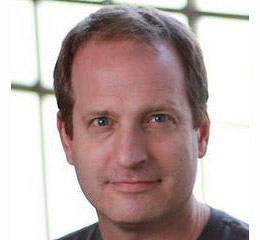With RadioPublic, These Podcasting Pioneers Plan To Reinvent The Medium
Don’t let all the buzz fool you: Podcasting is still very much in its infancy. As of early last year, only 17% of Americans listened to podcasts regularly, according to Pew. Jake Shapiro and Kerri Hoffman, both veterans of Public Radio Exchange (PRX) and podcasting pioneers, are hoping to change that with a unique partnership.

As of today, Shapiro is stepping down from his role as CEO of PRX and into a new job: founder and CEO of RadioPublic, a public benefit corporation focused on mobile audio consumption and app development. In his place, Hoffman will become CEO of PRX so the two organizations can work side by side to nudge podcasting into the 21st century and court a new generation of listeners as fewer people reach for the FM radio dial. RadioPublic is backed by investors like the New York Times, the Knight Foundation Enterprise Fund, Project 11 and the McClatchy Company.
Founded in 2003, PRX is a nonprofit that distributes public radio programming and assists producers in navigating the ever-changing landscape of audio consumption. In 2014, PRX teamed up with 99% Invisible host Roman Mars to launch Radiotopia, a network of story-driven podcasts backed by a hugely successful Kickstarter campaign.
PRX, which built stand-alone listening apps for popular shows like This American Life and The Moth is now effectively spinning off its mobile app development team into a new company that will focus on the listening experience more intently, leaving PRX to sharpen its focus on the producer-facing side of the business.
“Our goal with PRX has been to help producers reach audiences and refine their craft and grow their revenue,” explains Shapiro. “RadioPublic is the last mile connector to the audience.”
At launch, RadioPublic is focused on building a mobile app for listening to podcasts and radio-like audio content on smartphones with as little effort as possible. Unlike existing podcast players such as Stitcher Radio and Overcast, which let users curate their own list of shows, RadioPublic’s apps will offer a laid-back, nearly effortless approach to listening in the hopes of injecting the simplicity of terrestrial radio into the podcasting space.
“Rather than think about a lot of complicated features, our goal is hopefully simplify it down to just a play button, eventually,” says Shapiro. The RadioPublic app, now in the earliest stages of its design, will try to minimize screen time in favor of a more audio-based experience. To keep things personalized, RadioPublic’s app may include some kind of Pandora-style up-voting mechanism as well.
The RadioPublic team touts ample design and technical experience from PRX’s previous app-building endeavors. In addition to technology frameworks and best practices, Shapiro’s team brings with it a host of lessons learned from past failures.
“We’ve definitely made a whole series of mistakes that we’ve learned from,” says Shapiro. “[Like] over-building features, over-anticipating the kind of participatory or social elements of what might work with audio.”
RadioPublic is being formed as a for-profit corporation rather than a nonprofit, Shapiro says, because it’s easier to raise money for journalism than it is for technology and design. RadioPublic is, at its core, a consumer mobile app development firm, which is typically easier to fund and scale as a for-profit enterprise. But by incorporating as a public benefit corporation, RadioPublic will have its public good-focused mission emblazoned in its corporate charter, ensuring future leaders don’t lose sight of its founding principles.
Eventually, RadioPublic hopes to tighten the feedback loop between podcast producers and listeners, giving show creators better insights about how listeners interact with their content, and possibly even improve the way that audio content and advertising are developed for mobile platforms in the first place. For now, their focus remains on building a compelling, dead-simple interface for listening to shows.
“What I’m excited about on the PRX side is that my role can really focus in a proactive way on the problems facing producers,” says Hoffman, whose longstanding collaborative relationship with Shapiro will continue in a new form. “It’s really hard to do all of these things and also be a mobile app company.”
Fast Company , Read Full Story
(59)














